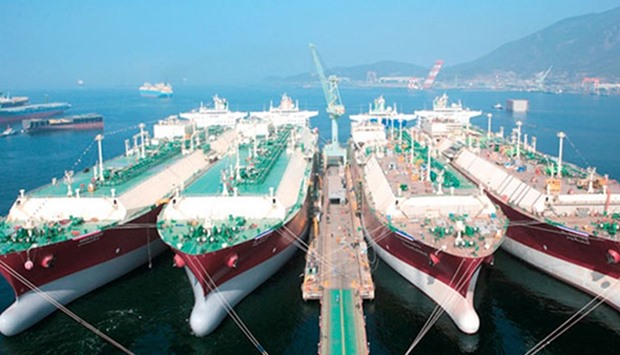* Pakistan-Qatar seek to clinch bigger deal
Pakistan State Oil has backed out of a nearly $1 billion deal to buy liquefied natural gas (LNG) from Royal Dutch Shell after receiving a lower price from Qatar, two sources with knowledge of the matter said on Friday.
The deal shows how top exporter Qatar is being forced to become more competitive in an oversupplied LNG market as it also closes in on a bigger 15-year deal to supply Pakistan with gas.
The setback to Shell may stir unease from its investors already worried about the impact of the downturn in the oil market on its $48 billion acquisition of BG Group, which when finalized will turn it into the biggest LNG trader.
Shareholders of both companies will later this month vote on the deal, which is expected to be completed by Feb. 15.
Shell declined to comment, while Pakistan State Oil company and Qatargas did not immediately return requests for comment.
Pakistan was to buy 60 LNG cargoes from Shell after the oil major submitted the lowest price in a tender finalised late last year.
Before officially awarding the cargoes, Pakistani officials managed to clinch a more favourable deal with Qatargas even though it was not in the original tender, the sources said.
Pakistan's minister of petroleum, while finalising a delayed long-term LNG import deal with Qatar, in parallel arranged for the additional 60 shipments, they said.
Qatargas will supply the cargoes at a price of 13.37 percent of a barrel of crude oil, one of the sources said. This is the same price level at which trading house Gunvor will deliver 60 cargoes to Pakistan over the same 2016-2020 period.
With oil prices at $30 a barrel, 60 cargoes should fetch around $770 million, although a rebound in prices to $40 a barrel would put the price-tag at around $1 billion.
Gas giant Qatar is becoming commercially sharper, using traders and tenders to grab new customers, and fighting to hold on to its share in the prized Asian market as demand wanes and competition intensifies.

